9 things to know about Igor Levit
May 5, 2015
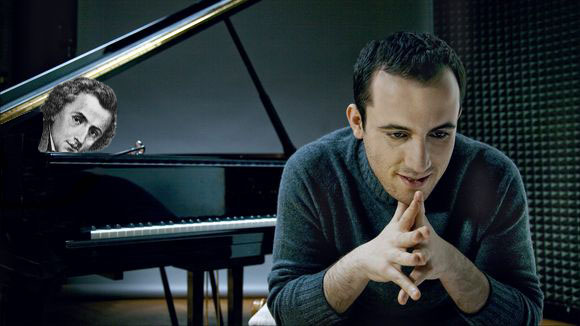
Since we first asked Igor Levit to visit Kalamazoo for our Rising Stars series, he’s popped up all over classical music radar. Reviews of his three CDs, Bach Partitas BWV 825-830, Beethoven: The Late Piano Sonatas and his most recent release Bach, Beethoven and Rzewski have called the works “magisterial” and “stunning,” but the pianist behind the music is just as fascinating.
Be sure to purchase tickets to Levit’s Feb. 7 recital at Wellspring Theater!
1. He has a sweet tooth.
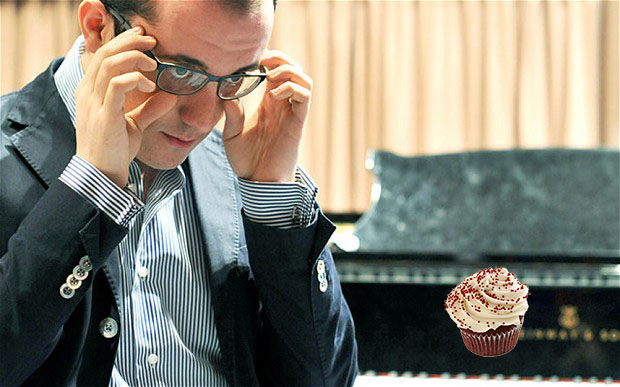
On April 21, en route to perform at the Wallis Annenberg Center in Los Angeles, Igor Levit stopped for a brownie on Beverly Drive. He enjoyed the brownie enough to tweet about it, which wouldn’t have been a big deal… if the reviewer at that concert hadn’t noticed the tweet and lamented in a kids-these-days sort of grumble – though he provided a remarkable review for the recital.
But that wasn’t Levit’s first time relaxing pre-concert nerves with dessert. In 2012, Maurizio Pollini canceled all of his tour dates due to health issues, and Levit was asked to fill in. “The experience was especially interesting,” Levit told David Latulippe for KALW in San Francisco. “I was having a cake in Hanover, it was 2 PM… and I got a call from Vienna saying, ‘Would you be able to fly to Vienna? Pollini has just canceled his recital.’ I said, ‘When’s the recital?’ And they said, ‘It’s tonight.'”
There was one flight to Vienna that day, and it was scheduled to land an hour before the recital. “So I finished my cake,” Levit said, “And I said, ‘I will do it, but you’ve got to let me play whatever I want.'” Levit made the flight and performed pieces by Beethoven and Frederic Rzewski in what one reviewer called a “deus ex machina,” and what Levit himself described as “giving the audience a hard cookie to eat.” So despite the rush, Levit had his cake and ate it, too.
2. He had the highest test scores at the Hanover University of Music, Drama and Media.
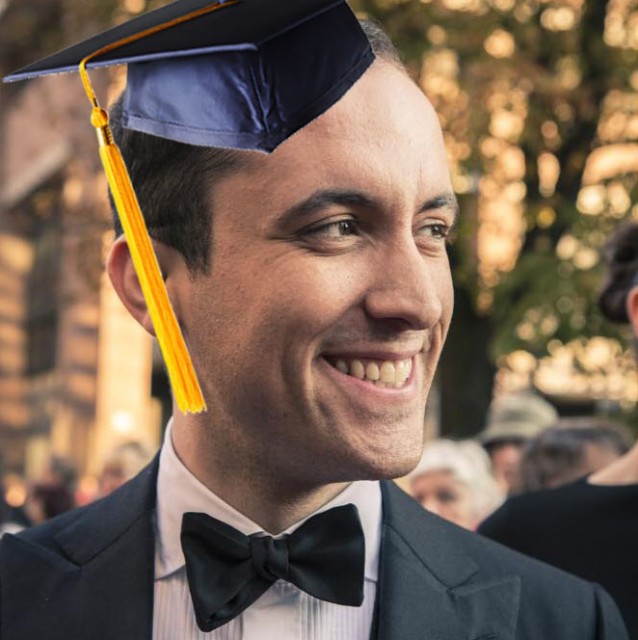
Levit moved to Germany at the age of 8, and he says he doesn’t remember anything from his early childhood in Russia. Perhaps his most memorable childhood moments happened after his family moved to Hanover in 1995. From 2000 until 2010, Levit studied at Hanover University under Karl-Heinz Kammerling, Matti Raekallio and Bernd Goetzke. By the time he graduated, he was the highest-ranking student in the school’s history.
“It was quite interesting to get this news. It was funny!” Levit said nonchalantly. “It’s by far the best piano department, worldwide.”
3. He was the youngest participant in the Arthur Rubinstein competition in 2005.

Not only was he the youngest, but it could be said he was the most successful: He took home 2nd Prize, the Audience Favorite, Best Performer of Chamber Music and Best Performer of the Israeli Competition. Watch Levit’s performance of Beethoven’s Sonata No. 2 here.
4. He’ll never play Chopin.

“There are composers I love, but I’d never perform,” Levit said. “Most prominently is probably Frédéric Chopin. I simply think there are other colleagues – admired colleagues – who are simply better at that than I am…. He’s a composer whom I admire incredibly but won’t bring onstage.”
5. He’s played the piano for a quarter of a century.
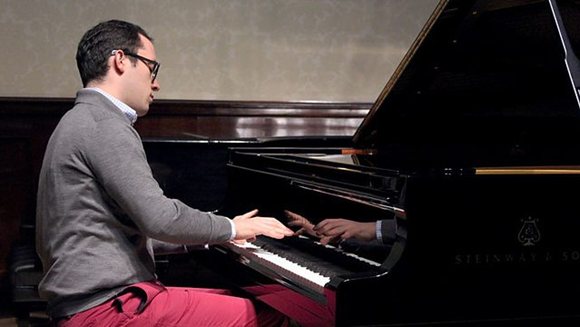
The 28-year-old pianist has been practicing since the age of 3, which makes him a 25-year veteran. That’s as long as The Gilmore has hosted its biennial festival!
Some critics say Levit plays with wisdom and tact well beyond his years, but he’d rather let them eschew the subject of age altogether. “I don’t mind if people say the way I play Beethoven is rubbish,” he told the Telegraph, “but I can’t stand it when people say, ‘Oh well it was bound to be rubbish, he should wait another 20 years before playing Beethoven sonatas.’ Either it’s good or it isn’t.”
6. He bears a resemblance to a certain composer.
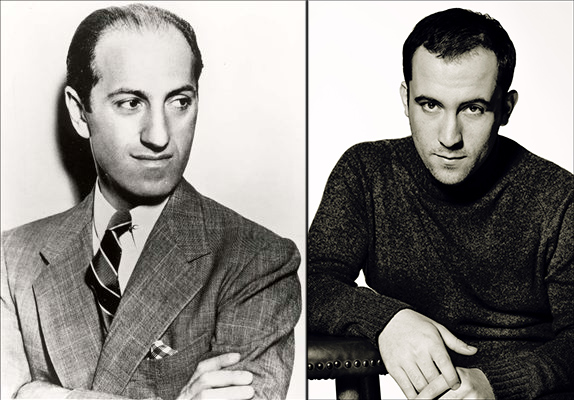
Unlike Levit, George Gershwin didn’t get the best grades in school – he dropped out at the age of 15 and took a job in New York City. But the two have a few things in common, which was noticed at Levit’s first appearance in a town Gershwin knew well: Los Angeles.
“Levit appeared on stage a fashionable young man with close-cropped hair and a fitted, stylish suit with a sharp white pocket-handkerchief that made him look like a film star from the ’30s,” said an LA Times reviewer. “Seen in profile at the piano, he had a remarkable resemblance to George Gershwin.”
“That resemblance didn’t stop with appearances. Levit’s was modern, levitating Bach… with an almost jazzy character.”
7. Playing the piano is not “special.”
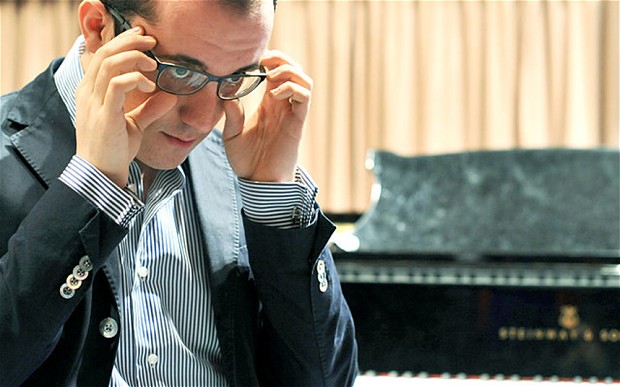
At the end of the day, playing the piano is a career for Igor Levit – a career that has taken years of habitual practice. The bench is a familiar place, not a rare pleasure. So while other pianists turn their business into a fantasy, Levit takes the time to bring himself back down to earth.
“I hate these phrases, like, ‘For me, music-making is the most special thing in the world,” Levit told the BBC Radio. “It’s not! It’s the most normal thing for me. It’s just there.” He asserts that piano-playing is in his nature, and everything else is secondary. “If you ask me what else I do… that’s special.”
8. He doesn’t relax.
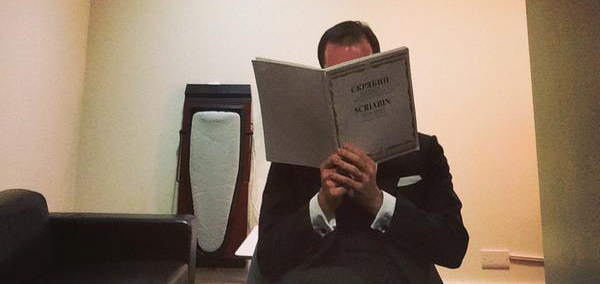
Don’t get it wrong: Levit considers himself “very relaxed, personally.” But the pianist, who has been competing since he was about 7 years old, hasn’t taken so much as a summer vacation, even throughout his teenage years.
“I’m always sort of on the edge,” Levit said. “I’m really scared of relaxation… I haven’t been [on] holiday [in] 11 years or so. [Even then,] I needed five or six days out of seven to get my body to relax. I need the activity! I don’t do anything particularly to relax.”
9. He’s working on a very customized project.
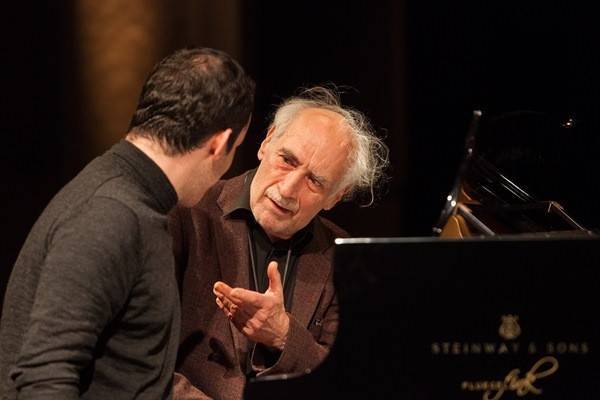
Though his talent exudes in performance, perhaps Levit’s diligence to the craft of piano is even more impressive. The library at Hanover University contains over 200,000 items, including one of the largest CD collections of all music schools. Levit decided to work his way through that CD collection from A to Z. (“Levit never does anything by halves,” notes a Telegraph reporter.)
Eventually, he came across Frederic Rzewski’s “The People United Will Never Be Defeated!,” a set of 36 variations on the Chilean revolution song “¡El pueblo unido jamás será vencido!”
Levit was “blown away” by the piece, so naturally, he called Rzewski and asked for a new personalized composition. Levit performed 36 variations on The People United Will Never Be Defeated! for his recent release, which also features Bach’s Goldberg Variations and Beethoven’s last five piano sonatas – a three-disc album well worth the 3 hour and 15 minute listening investment.
You can listen to Levit’s album on Spotify, and be sure to buy tickets to his Feb. 7 concert!
